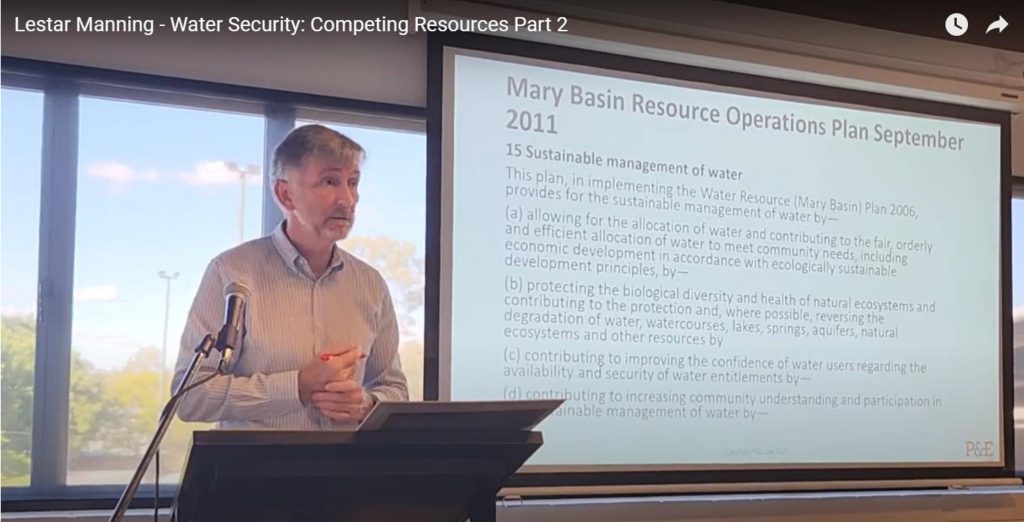
Lestar Manning of P&E Law asks are there adequate planning regimes needed to balance competing interests in the use of water. Lestar uses examples from the current revision of the Water Plan for the Mary Basin and earlier planning for water use in the Darling Downs area where there are several planning layers that don’t marry up, providing a contradiction of water allocation to competing interests. This presentation was made at the June 2023 Property Rights Australia conference.
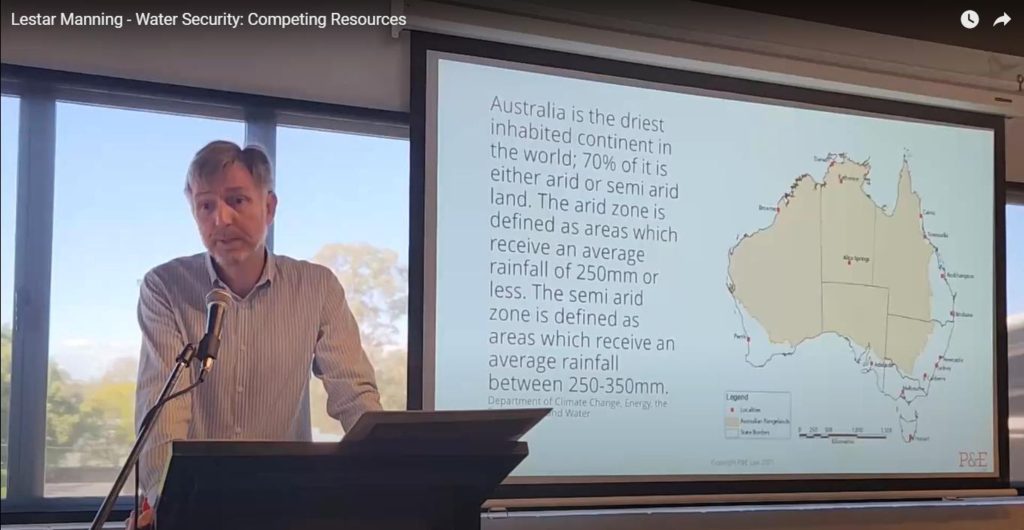
Long established law about water establishes that no one has property in water itself except where in has been extracted from a stream. Current legislation gives rights to the use of water, not ownership of water. Lestar Manning of P&E Law asks is there good governance providing adequate legal regimes needed to balance competing interests in the use of water. Are there consistent standards for those competing for the use of water and sufficient accountability in relation to government department decisions. This presentation was made at the June 2023 Property Rights Australia conference.
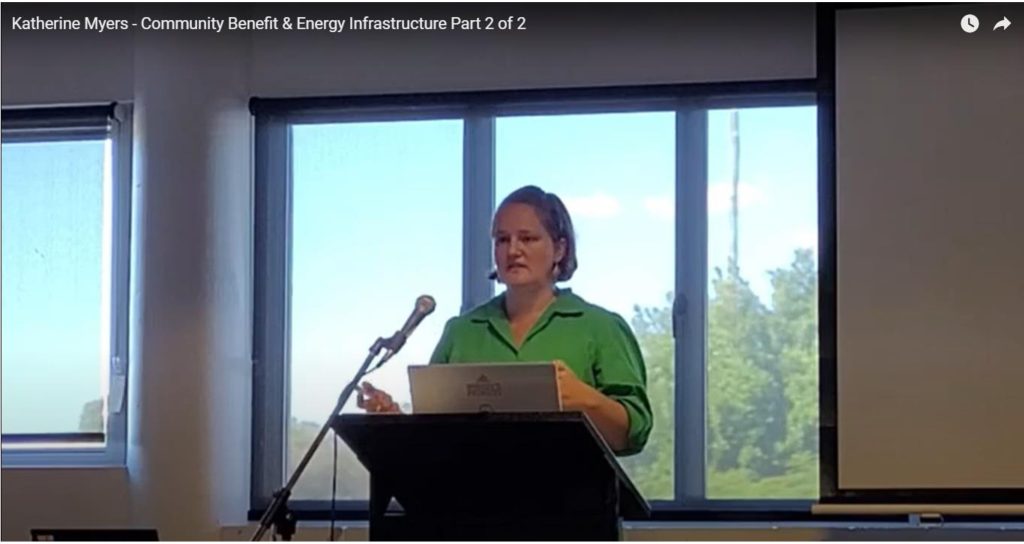
Over 27,000 km of new transmission lines are said to be needed in Australia to connect renewable energy industrial sites to the electricity grid. So far there has been poor planning and inadequate cost benefit analysis. Needed is consideration of environment, economic, community impacts and the rights of landowners. Katherine Myers has formal advocacy roles with the VFF Workforce and Social Infrastructure Committee and also Moorabool and Central Highlands Power Alliance. Katherine gave a presentation at the 2023 PRA Conference.
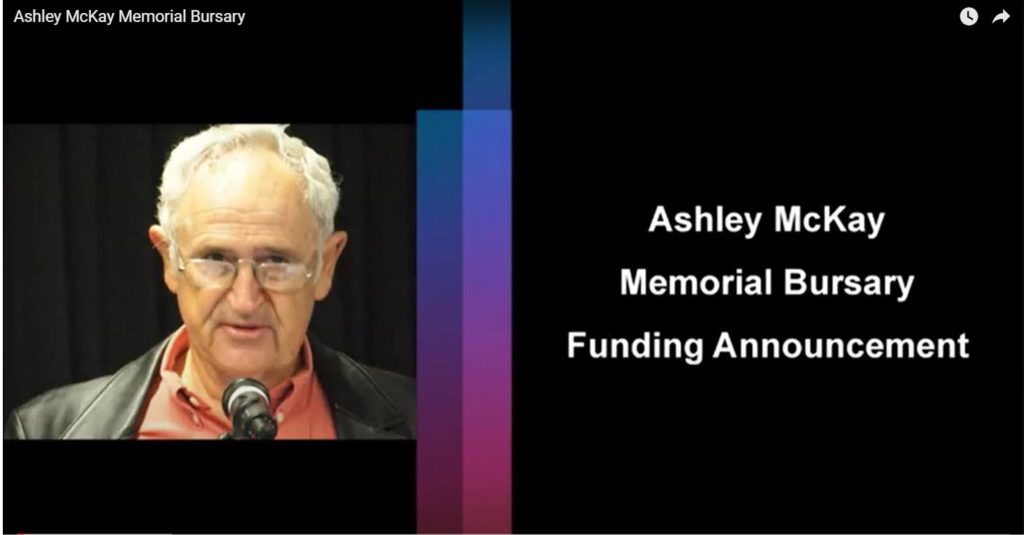
The Ashley McKay Memorial Bursary (‘the Bursary’) will be awarded to two individuals per year and is funded by the Australian Horizons Foundation and proudly administered by Property Rights Australia. Penny Johnson, CEO of the Australian Horizons Foundation outlined the importance of the bursary at the 2023 PRA Conference.
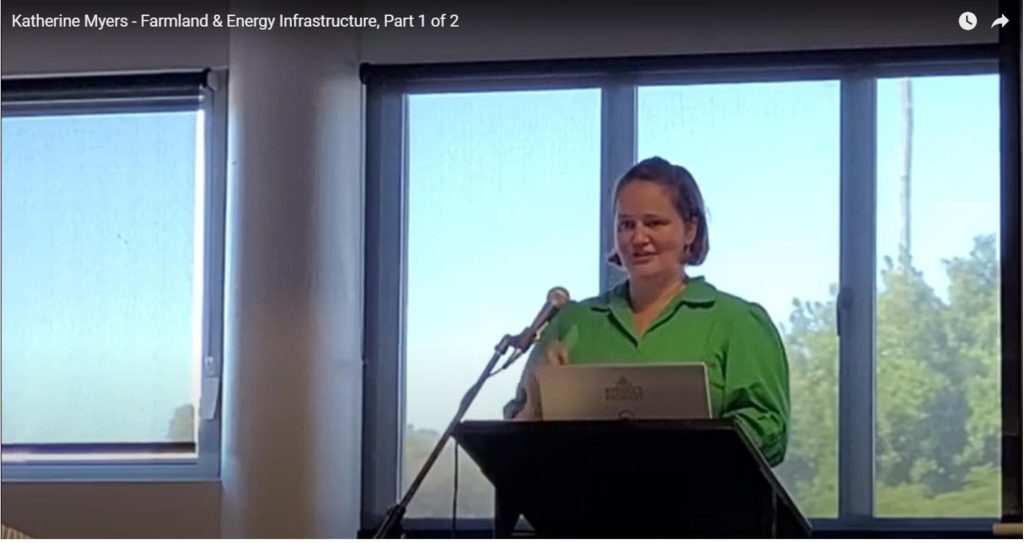
There is a need to protect farming from renewable energy infrastructures. To farmers those relatively small areas of high food productive soils are precious. Yet to company boardrooms making huge investment decisions are not aware of its value and sadly may not even care. Katherine Myers has formal advocacy roles with the VFF Workforce and Social Infrastructure Committee and also Moorabool and Central Highlands Power Alliance. Katherine gave a presentation at the 2023 PRA Conference.
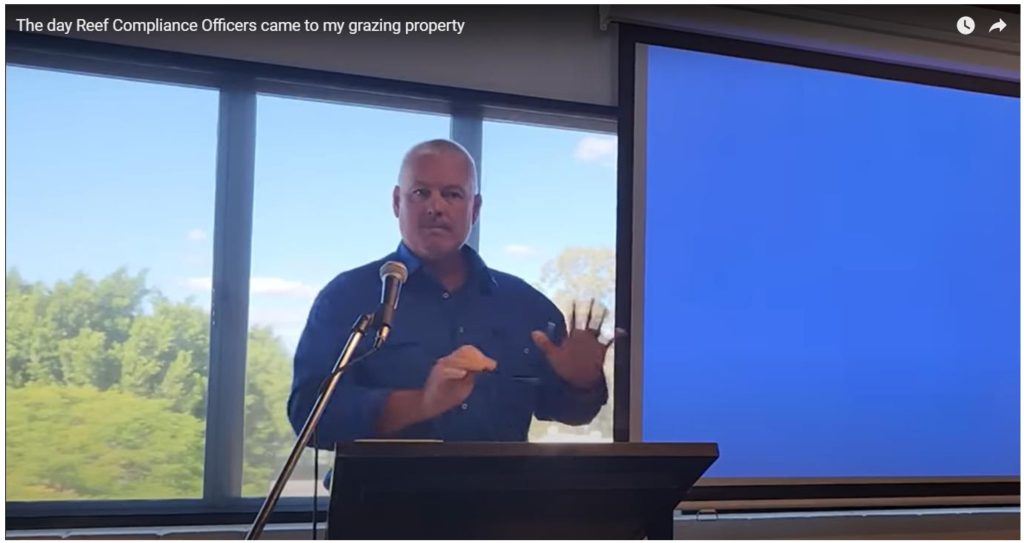
Central Queensland grazier, Craig Bailey gave a strong presentation at the 2023 PRA conference of how his family felt being subjected to a compulsory audit under the reef protection regulations. Craig was surprised to be under such a microscope because in 1994 his family changed their approach to property management decisions, aligned to what has now become known as regenerative agriculture. On the day of audit, two young compliance officers had little knowledge or interest in Craig’s land management. Craig felt the method used by the reef regulations is saying to farmers and graziers that they haven’t the skill or the will and can’t be trusted to look after their properties. Having previously little knowledge of reef regulations, Craig has since looked into them and is dismayed at the mechanisms in place. “You don’t put a hammer in your toolbox unless you plan to use it one day.”, Craig observed, “The Queensland government pretty much have seized control of the management of your property.”
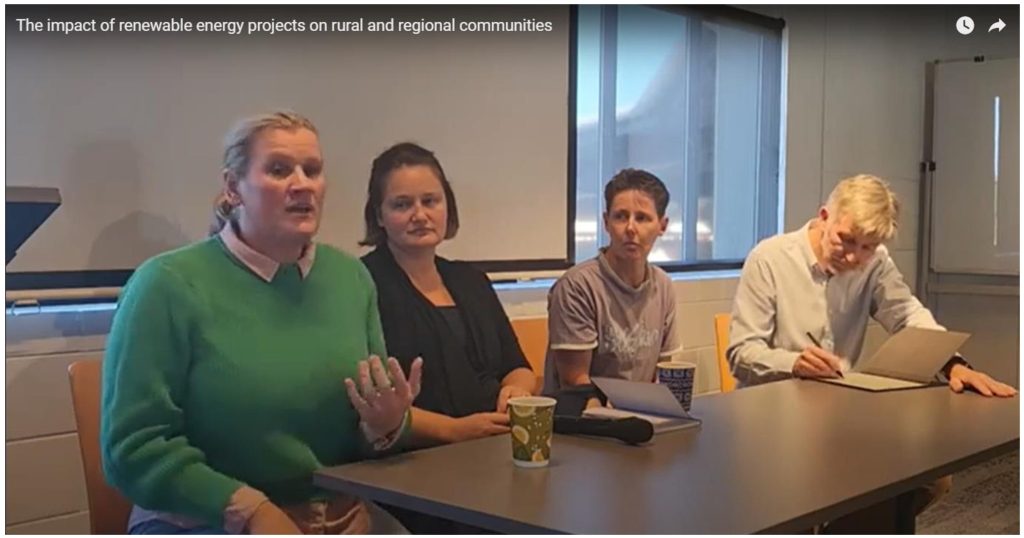
Katy McCallum shares her frustrations with the process of so-called government consultation. She remains a tireless campaigner for her community seeking a better outcome for the Kilkivan community and rural and regional communities.
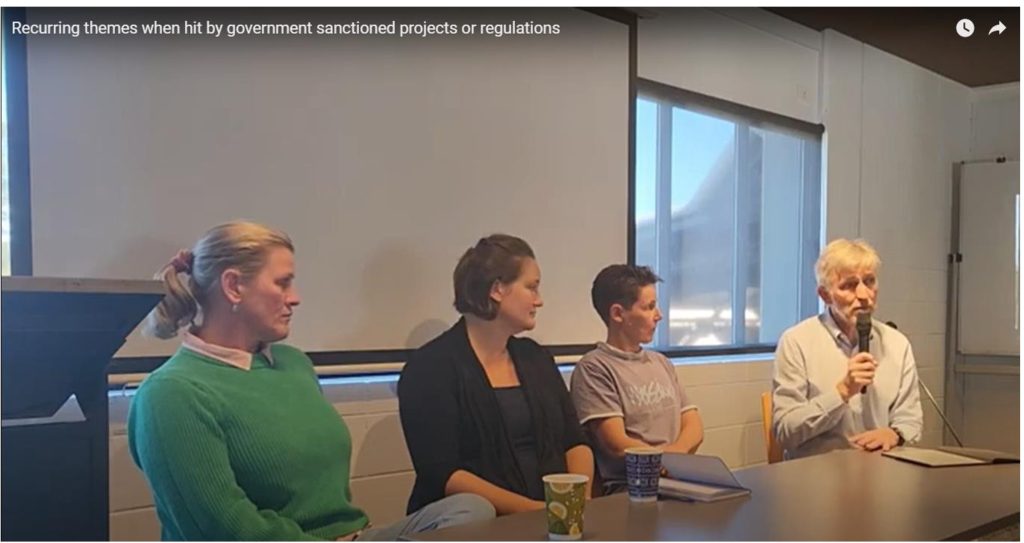
Common themes were identified at the 2023 PRA conference by Lestar Manning in this insightful observation made from his and other presentations that covered areas from water security, reef policy, disturbance from renewable energy projects and their transmission corridors. These common themes have been reoccurring for some time with that taking of landowner’s property rights:
- Misinformation from government;
- Poor government consultation;
- Community advocates undervaluing their knowledge base;
- Divide and conquer led by government; and
- The advocacy process is a marathon not a sprint.
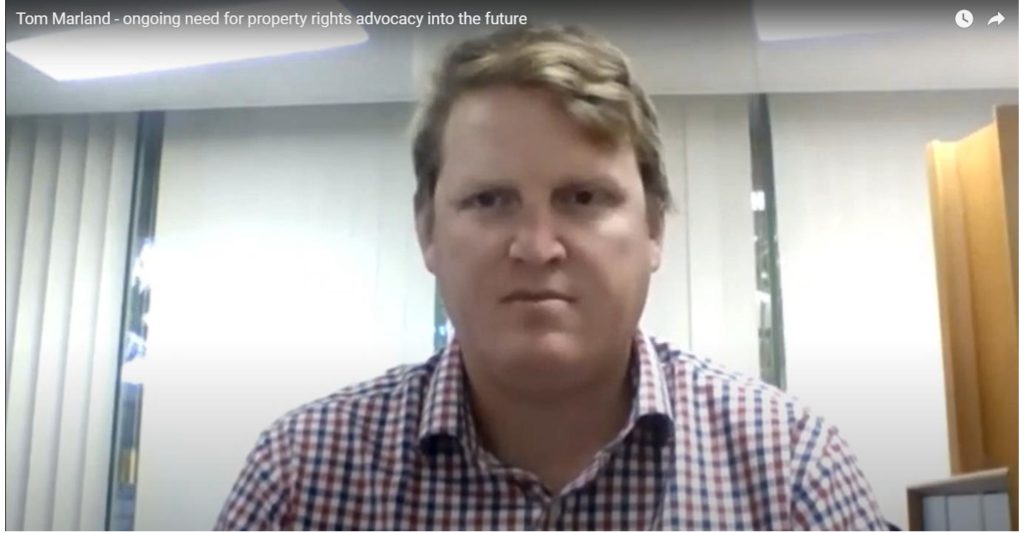
In 2003 as a 1st year law student, Tom Marland attended the 1st Property Rights Australia meeting, rallying landowners to build a fighting fund to stand against injustice. Now 20 years later, Tom has his own law firm that deals with rural property rights issues. In this video Tom speaks about his long association with PRA including serving on the Board. New challenges against people’s property rights have had to be fought over the years, notably the lack of consideration for landowners in the coal seam gas rush. Tom points to renewable projects and their transmission connections as of being potentially worst. There is no doubt of the ongoing need for property rights advocacy into the future.
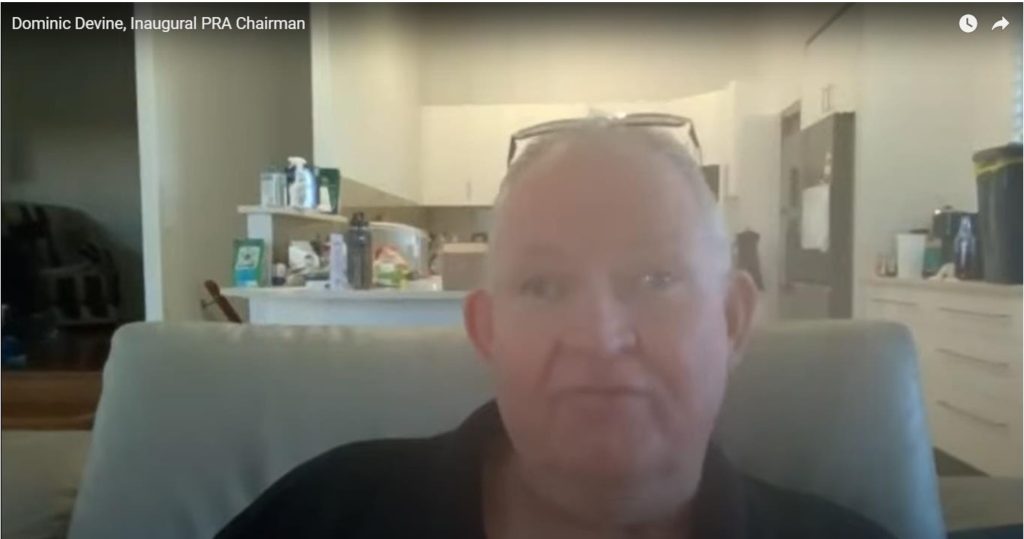
True independence and being really factually based was the hallmarks for Property Rights Australia from its early years. At the 2023 conference on June 9th & 10th, PRA will celebrate its 20 year anniversary. Dominic Devine takes us back to the circumstances that made it necessary to raise a fighting fund to protect against belligerent State prosecutions.
